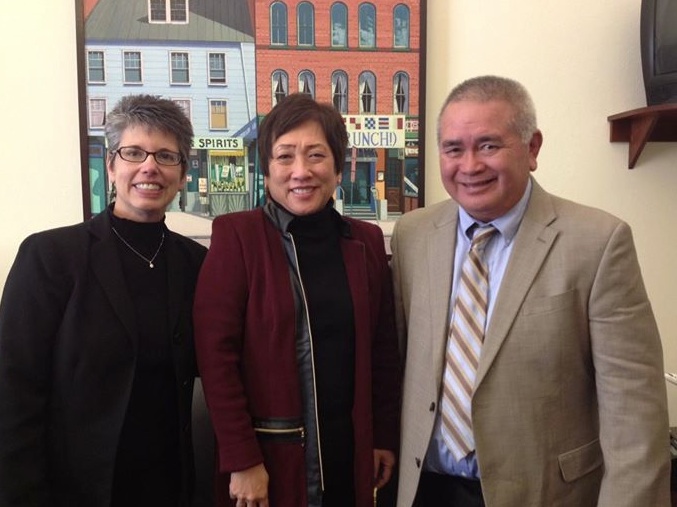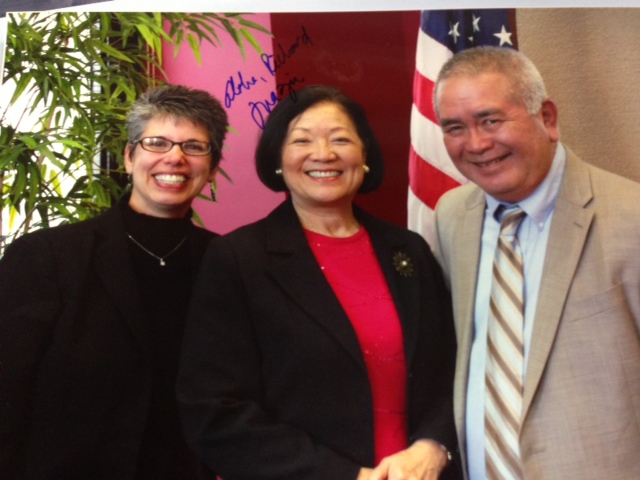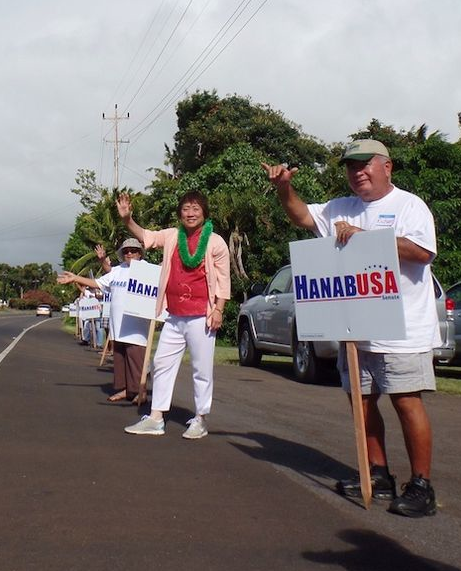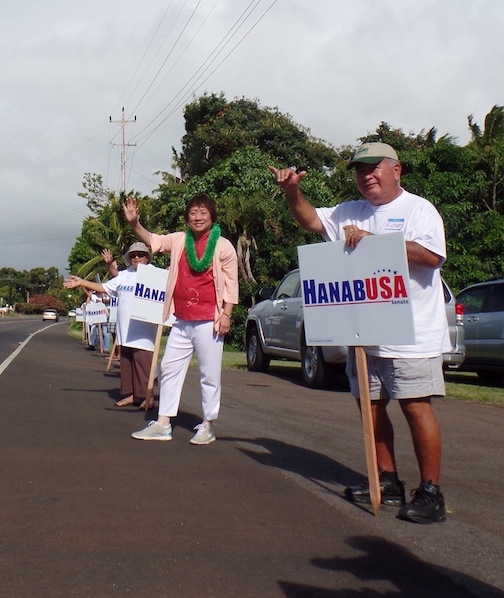Richard Ha writes:
Before I left for Washington, D.C. last week, I picked up some assorted macadamia nuts to take with me. As I met different people, I passed out the mac nuts. It’s not Washington style to bring gifts like that, but they were very well received.
I was in Washington as a CARET delegate representing Hawai‘i. CARET is the Council for Agricultural Research, Extension, and Teaching. Maria Gallo, dean of the University of Hawai‘i at Manoa’s College of Tropical Agricultural & Human Resources (CTAHR) asked me to be a delegate, and I spent my time in Washington learning more about CARET and meeting with our Congress people and members of their staff.
CARET has an interesting history dating back to before the Civil War, when the federal government gave states land to develop educational opportunities for regular people. Before that, there were only private schools. But the new land-grant colleges were a place where the rubbah slippah folk could learn trades. The 1862 Act establishing them was signed by President Abraham Lincoln, and it’s how America became so good at agriculture.
What is a Land-Grant College?
WHAT: A land-grant college or university is an institution that has been designated by its state legislature or Congress to receive the benefits of the Morrill Acts of 1862 and 1890. The original mission of these institutions, as set forth in the first Morrill Act, was to teach agriculture, military tactics, and the mechanic arts as well as classical studies so members of the working classes could obtain a liberal, practical education.
Over the years, land-grant status has implied several types of federal support. The first Morrill Act provided grants in the form of federal lands to each state for the establishment of a public institution to fulfill the act’s provisions. At different times money was appropriated through legislation such as the second Morrill Act and the Bankhead-Jones Act, although the funding provisions of these acts are no longer in effect.
A key component of the land-grant system is the agricultural experiment station program created by the Hatch Act of 1887. The Hatch Act authorized direct payment of federal grant funds to each state to establish an agricultural experiment station in connection with the land-grant institution there. The amount of this appropriation varies from year to year and is determined for each state through a formula based on the number of small farmers there. A major portion of the federal funds must be matched by the state…. Read the rest
What CARET does now is act as a grass roots organization and advocates for national agricultural policy in the federal budget. There are also smaller sectors within the whole; I will meet as part of the group representing the West this summer, and we will try to fit whatever we are advocating for into the bigger picture. It is very collaborative.

Maria Gallo, Congresswoman Colleen Hanabusa and me
Previous CARET delegates, industry members and our Congressional delegation helped get federal funding to deal with the coffee berry borer that threatens our coffee industry here.
I put out there that what we need help with in Hawai‘i now corresponds exactly with the mission of CARET: we need research, education and outreach–straight information so that people can make good and informed decisions about the challenges we are facing now.

Maria Gallo, Congresswoman Mazie Hirono and me
There has been a suggestion by the National Institute of Food and Agriculture (NIFA) which provides federal funding, that we look into setting up “Centers for Excellence” in different sections of the country. We’re thinking that it would be great to have a Center for Excellence in Hawai‘i that focuses on invasive and endangered species.
I enjoyed working with Dean Gallo on this trip. She is open and collaborative and easy to talk with, and her compass points in the same direct as mine: she too is looking down the road to future generations. She is inclusive of everybody and doesn’t pit farmers against other farmers. We are both concerned about how we ensure more food security for everybody here. I am glad to be working with her and as a CARET delegate.
First time I saw snow falling. The view from my hotel balcony
I wore long pants on this trip, and I had a jacket with me but the first time I walked out of the hotel to go walk in the snow, I said, “Holy smokes!” I think it was 14 degrees on my coldest day there, and that cold goes right through your clothes. It was the first time I experienced that.
Dr. Gallo's friend from Alaska asked her if I would like to borrow his coat. It was heavy and warm. I guess he knows how to buy a good coat, living in Alaska.
Before I returned it to him, I filled up the pockets with the same macadamia nuts I was giving to the Congress people and their staffers. There were some chili peppah-flavored mac nuts, and spam flavored and wasabi ones. And I stuffed a bunch of those little blue triangular packages of regular mac nuts in there, too. He said he made out better on the deal than I did.





